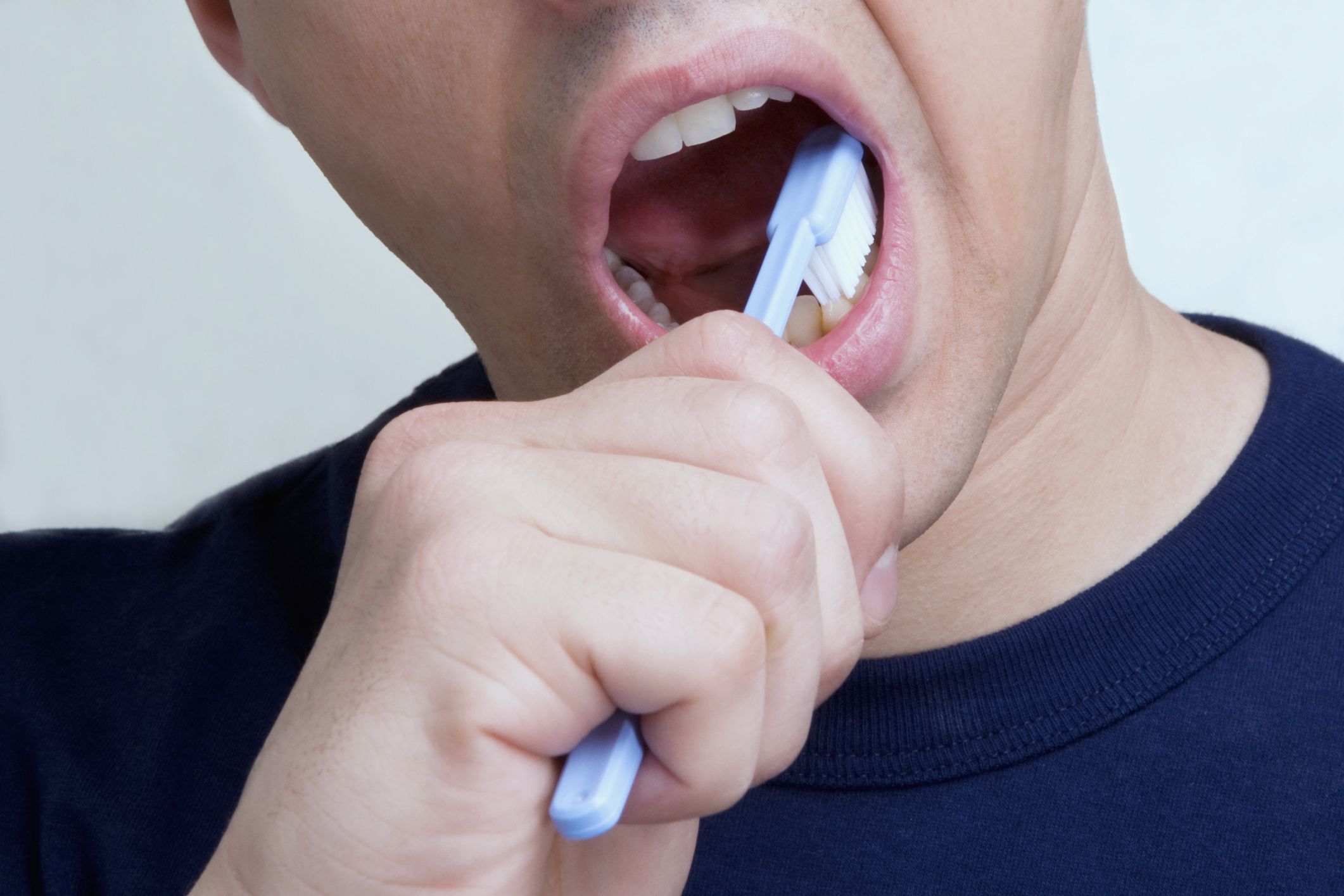Which toothbrush to choose? How many times brush a day? How to prevent sensitivity of teeth? Read more to know about proper oral hygiene!

The All India Dental Students Association recently released a detailed video on the "correct way to brush". (Wikimedia Commons)
Brushing teeth is something every human does from the age those little pearly whites peak through the gums. But despite years of practice, people make simple mistakes when brushing — mistakes that could do a lot of harm and that can also burn a hole in your pocket.
Speaking to South First, All India Dental Students and Dental Surgeons Association (AIDSA) national president Dr Md Manzur Ahmed explained that most Indians go wrong in something as simple as choosing their brush.
He said, “From choosing the right toothbrush, the exact pressure to be applied on the brush, how to hold the brush, how many times to brush — all this becomes important. Many are not aware of this process.”
Dr Vikas Gowd, renowned dentist from Dr Gowds Dental Hospital in Hyderabad, on his YouTube channel, says that when it comes to toothbrushes there is no one size that fits all.
“Even a newborn baby’s oral hygiene is important and the cleaning process should start immediately. Once the teeth start coming in around 2 years of age, one needs to start using a baby brush, which is very small, has softer bristles, a smaller handle to hold on to, and a smaller head. Ensure that you brush all around the teeth. They eat a lot of chocolate, drink milk late at night, so once the last meal is done, brushing must be done. Do not ignore the ‘milk teeth’,” he says.
Once the permanent teeth are in place, it is important to know the way one brushes, number of times to brush, and the selection of the right brush.
“I have seen a lot of Indian girls who have very small mouths. What their mother or father use are hard-bristle brushes and what is meant for them may not suit these children. They may not be able to reach the corners of their mouth. So young boys and girls may need a small, bendable head. Try for choice from brushes that will reach the corner of the mouth.”
Warning that hard brushing can damage the enamel of the teeth in adults and cause tooth sensitivity for many, Dr Manzur suggests using soft-bristle brushes. “This should be changed often and it should also be used with sensitivity toothpaste.”
However, some men have large teeth and a soft-bristle brush won’t clean their teeth. Such people can use a medium or hard-bristle brush instead. “But not very hard!” warn doctors.
There are also powered or electric toothbrushes available. Dr Vikas says that the problem with sudden shifting from manual toothbrushes to powered ones is that one tends to brush longer.
“Some powered toothbrushes have automatic cut-off, which is preferred, as longer brushing can also damage the teeth,” Dr Vikas adds.

Images showing the right way to brush from the All India Dental Students and Dental Surgeons Association (AIDSA). (Supplied)
The All India Dental Students Association recently released a detailed video on the “correct way to brush”.
Dr Manzur says that many people fist the brush and brush like they are entering into a war with the teeth. “We should be gentle in our brushing. Hard brushing can damage the enamel,”
He explains that the brush has to be placed at a 45-degree angle to the front tooth surface. The bristles must come in contact with both lines of tooth and gum.
Then, the brush needs to be moved in a small, jiggling circular motion, cleaning the inside surfaces of the back teeth by moving the brush in a small back and forth motion.
The doctor explains that the inside front and upper teeth has to be cleaned by tilting the brush vertically using small up and down strokes. Also, the lower teeth should be cleaned by tilting the brush vertically using small up and down strokes. The brush should then be moved in a back-and-forth motion to clean the biting surfaces.
Many do not know the correct way of brushing. @aidsa_india releases the correct technique of brushing. Watch this @NammaBengaluroo @NammaKarnataka_ @official_aimsa @dentodontics @TheSouthfirst pic.twitter.com/xURcpfVSNL
— Chetana Belagere (@chetanabelagere) February 22, 2023
The American Dental Association recommends brushing your teeth with fluoride toothpaste for two minutes, twice daily.
In agreement, Dr Manzur tells South First that proper brushing takes at least two to three minutes — one and a half minutes on both the upper teeth and lower teeth.
“If you don’t brush your teeth for two to three minutes, the teeth may not be clean. The paste in the mouth should remain for a while for the bacteria to be cleansed. If it is left, then it can lead to a series of problems like periodontitis,” explains Dr Ashwini NS, a dentist from Bengaluru.
Interestingly, many dentists recommend using one’s non-dominant hand to brush in order to understand the pressure you are applying on your teeth while brushing.
Sensitive teeth, according to the AIDSA, is typically the result of worn-out tooth enamel or exposed tooth roots.
Dr Manzur says that, sometimes, there are cases when tooth discomfort is caused due to other factors like cavity, a cracked or chipped tooth, filling that is worn out, or gum disease.
If possible, it is ideal to brush up to three times a day, say dentists. However, a minimum of two times a day is important — once in the morning as soon as you wake up and once in the night along with flossing.
“Flossing is important for most people. Anyone who still has most of their teeth, people without teeth that are jammed together, and those whose gums have not receded leaving triangular gaps between the teeth should absolutely floss,” says Dr Manzur.

Jul 26, 2024

Jul 26, 2024

Jul 26, 2024

Jul 26, 2024

Jul 26, 2024

Jul 26, 2024